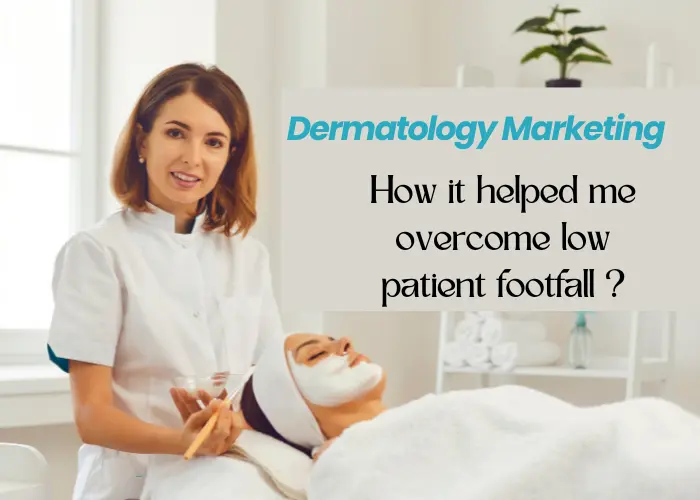
Have you ever had those painful, hard bumps on your face that don’t go away? You know, the kind that lingers under the skin and makes you wonder, “Why me?” These are called “nodules,” a severe acne that exceeds your usual pimples.
Unlike small pimples that might disappear in a few days, nodular acne lasts much longer and often becomes a stubborn, deep-rooted issue.
But why do these nodules on the face even happen? And why do they feel so different from regular acne?
Well, nodular acne is often linked to factors like hormonal changes, which is why many people first experience it during their teenage years.
But it doesn’t stop there; plenty of adults also struggle with nodular acne, especially with factors like stress, lifestyle, and diet playing a role.
Pigmentation, in simple words, can be called coloring. This usually affects your skin color. The pigment is nothing but melanin, which is liable for skin coloration. A few certain cells present in your skin make melanin. It begins to have an impact on melanin production when skin cells are harmed or become unhealthy.
This is a non-dangerous and general skin problem in which a specific skin part becomes darker.
Fun fact:
Did you know India ranks among the top countries for skincare concerns? With the rise in pollution, busy lifestyles, and dietary shifts, the incidence of severe acne, like nodular acne, has been increasing here. Many people in India struggle to find the right treatment without success.
Are you tired of dealing with these pesky, painful lumps that no homemade remedy seems to fix? Stick around! In the next sections, we’ll dive into everything you need to know about managing and treating nodular acne – from understanding the root causes to exploring effective solutions, both at home and with a dermatologist’s help.
Ever wondered why some pimples turn into these deep, painful nodules on your face? Pimple nodules and acneiform nodules don’t just show up randomly. They have deeper triggers, and once you understand them, you can start to manage them better.
So, what’s really behind these stubborn nodule pimples? One of the biggest culprits is hormones. Those hormonal shifts (especially around puberty or menstrual cycles) cause the skin’s oil glands to go into overdrive. This leads to clogged pores, inflammation, and the dreaded nodule pimple deep under the skin.
Did you know?
Studies show that about 80% of teenagers experience acne, and of those, a significant number deal with severe forms like nodular acne (Indian Journal of Dermatology). But nodular acne isn’t just limited to teenagers; adults aren’t off the hook either! Stress, diet, and genetics also play big roles.
Some people find that certain foods, like dairy or high-sugar items, can worsen their pimple nodules. Imagine eating your favourite sweets only to find a hard, under-the-skin pimple forming a few days later. It’s frustrating, but awareness helps you make informed choices.
Ever thought pollution could be a factor? Living in high-pollution areas in cities across India can clog pores and increase the risk of these painful, deep nodules. The particles in pollution can mix with the skin’s natural oils, leading to inflammation and potentially triggering these stubborn nodules pimples.
Now that we’ve got a better idea of what causes these painful nodules on the face, it’s time to figure out how to manage and treat them.
In the next section, we’ll explore how to recognize and identify nodular acne so you can be sure you’re dealing with the real thing and not just an average pimple.
So, how do you know if that hard, under-the-skin pimple is actually a nodule? Not every painful bump is nodular acne; understanding the difference can help you choose the right treatment.
Unlike regular pimples, nodular acne doesn’t just sit on the surface; it forms deep within the skin. Imagine a pimple turned into a hard lump under the skin – it feels firm, often painful, and doesn’t have a “head” you can pop (more on that later!). These nodules can appear as larger, reddish or skin-coloured lumps that might stick around for weeks, sometimes even months.
Here’s a useful tip: If you have nodule acne that doesn’t respond to usual pimple creams or treatments, it’s probably a nodular zit.
And you’re not alone – nodular acne is more common than you’d think, affecting millions of people in India and globally.
Another telltale sign is the location. You’ll often find nodules on the face around the cheeks, jawline, and chin, areas prone to oil buildup. Pictures of nodular acne can help you compare if you’re unsure, and a dermatologist can confirm if you’re dealing with nodules specifically.
Now that you know how to spot these stubborn lumps, let’s get into the million-rupee question: How long does nodule acne last? And, more importantly, how do you get rid of it? The next section will explore how long these nodules typically stick around and why they persist.
Alright, so you’ve identified that pesky nodule pimple on your face. But now the big question is: How long does it plan on staying?
Unfortunately, nodular acne doesn’t follow the “come-and-go” timeline that regular pimples often do. A typical pimple might clear up in a few days, but nodules? They’re in it for the long haul.
On average, nodule acne can last anywhere from a few weeks to a few months—yes, months! These deep, stubborn lumps don’t just sit on the surface—they form deep within the skin layers, which means they take longer to heal.
Nodular acne is highly resistant to over-the-counter treatments. Unlike regular acne, which responds to spot treatments and face washes, these hard, under-the-skin pimples require a different approach. And while it’s tempting to try squeezing or popping it, nodules won’t budge easily, and attempting to “pop” them can actually make them worse.
Thinking about ways to get rid of these relentless nodules? Don’t worry; help is on the way!
In the next section, we’ll discuss some effective ways to tackle these deep-rooted bumps, including both home remedies and professional treatments that can help ease the pain and reduce the inflammation.
When it comes to treating nodule pimples at home, you might wonder, “Can anything actually work for these stubborn bumps?” While it’s true that nodule pimples are tough to handle without professional help, some home remedies can ease the pain and reduce inflammation.
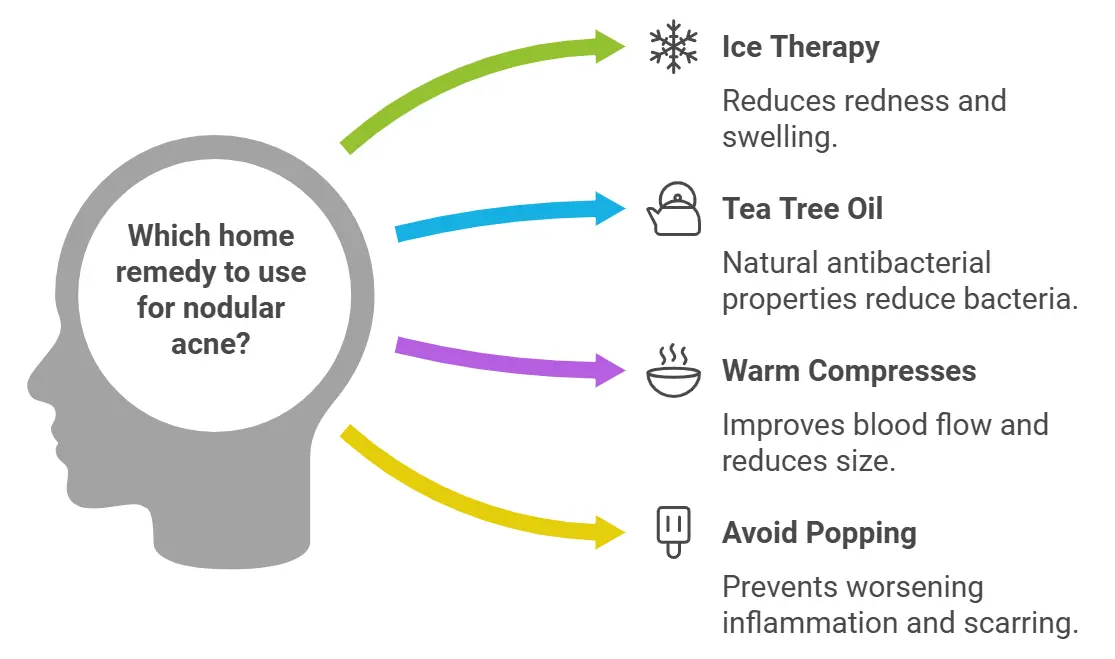
Applying ice can be surprisingly effective. Wrap an ice cube in a clean cloth and hold it gently on the nodule pimple for a few minutes. This can help calm the redness and swelling, making it feel less painful.
Ever tried tea tree oil? It’s popular in India for its natural antibacterial properties, which can help reduce the bacteria in your pores. Apply a few drops to a cotton swab and dab it on the nodule pimple – but remember, don’t go overboard! It’s powerful and should only be used as a spot treatment.
If you’re dealing with a pimple turned into a hard lump under the skin, a warm compress might help. It encourages blood flow to the area and can reduce the size of the nodule over time. Just dip a clean cloth in warm water, wring it out, and gently press it against the nodular zit.
This is a hard one, right? But trying to figure out how to pop a nodule pimple can lead to more harm than good. Popping these deep nodules can cause the inflammation to spread and even leave scars. Patience and gentle care are better allies here.
Mild, non-comedogenic products containing salicylic acid or benzoyl peroxide can help clear out excess oil and dead skin cells, reducing the chances of new nodules on your face. These ingredients can also make the hard under-the-skin pimple feel less swollen.
Curious about more intensive treatment options?
For persistent cases that don’t respond to home care, sometimes it’s best to seek professional treatments.
In the next section, we’ll cover dermatologist-recommended treatments for nodules pimples to help you get long-term relief.
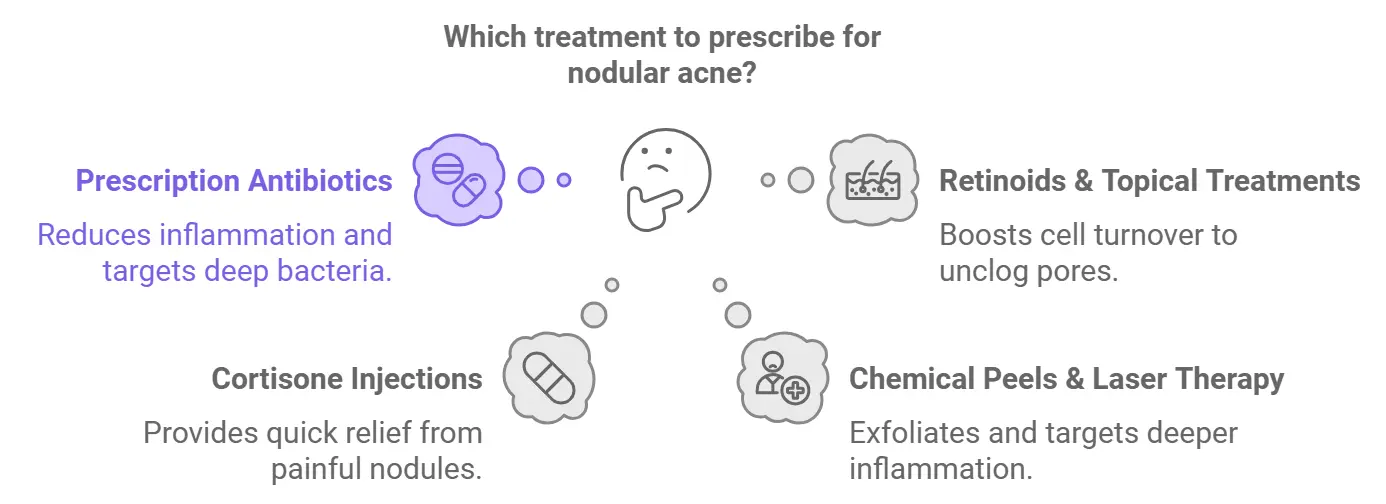
If you’ve tried all the home remedies and still have nodules that just won’t budge, it might be time to consider professional treatments.
Nodular acne is known for being stubborn, and sometimes, the best way to tackle it is with the help of a dermatologist who can prescribe stronger solutions.
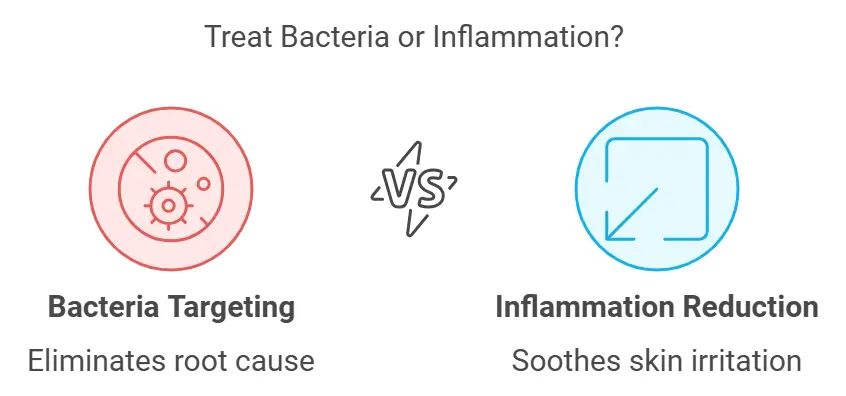
One of the first steps a dermatologist might take is prescribing antibiotics. These target the bacteria causing the infection deep within the nodule pimple, helping to reduce inflammation. Antibiotics are especially useful if your nodular acne is widespread and resistant to other treatments.
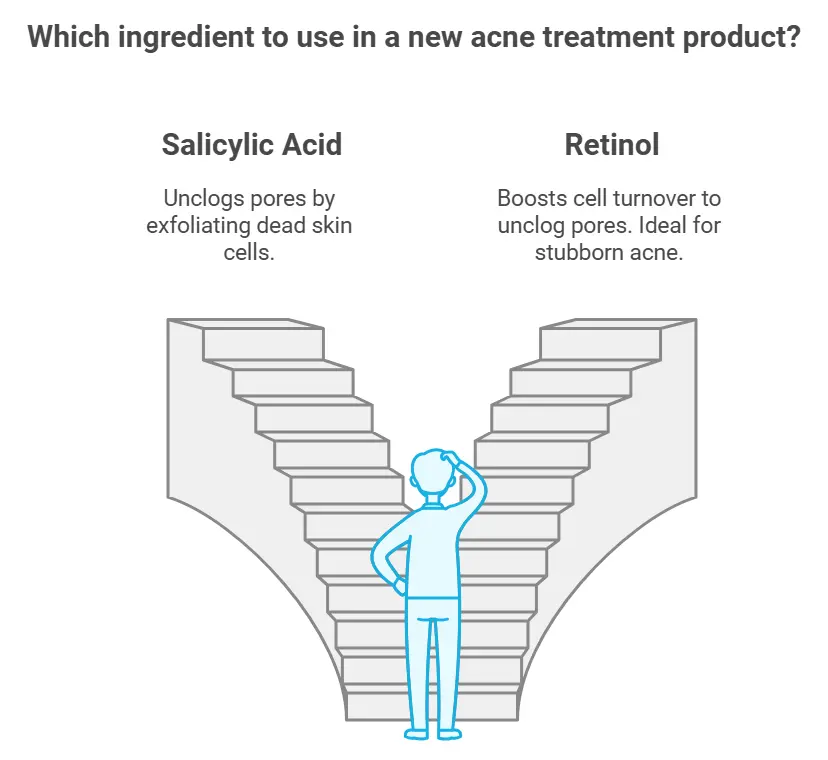
Prescription-strength retinoids are another popular choice. Retinoids work by increasing cell turnover, which helps to unclog pores and reduce the formation of nodules. You may have heard of popular brands dermatologists recommend – these can be particularly effective when over-the-counter options fall short.
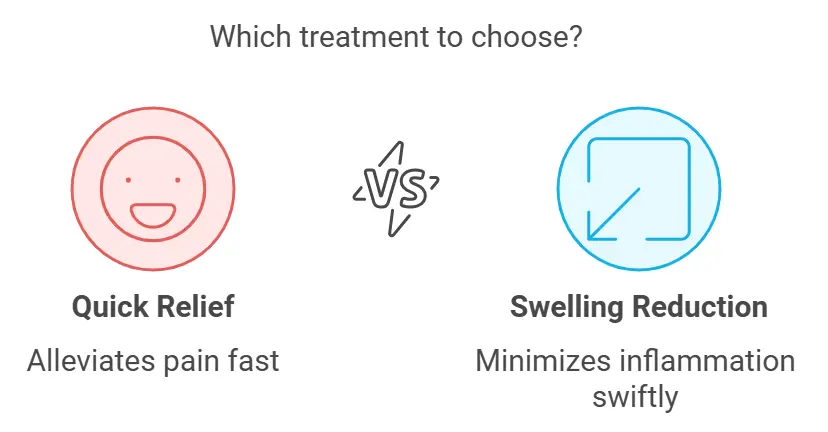
If you’ve ever had a particularly painful nodule pimple and wished it would just disappear, a cortisone injection might be the answer. Dermatologists can inject a small amount of cortisone directly into the nodule, drastically reducing swelling within 24-48 hours. It’s a game-changer for when you have an important event and need that nodule pimple removal fast.
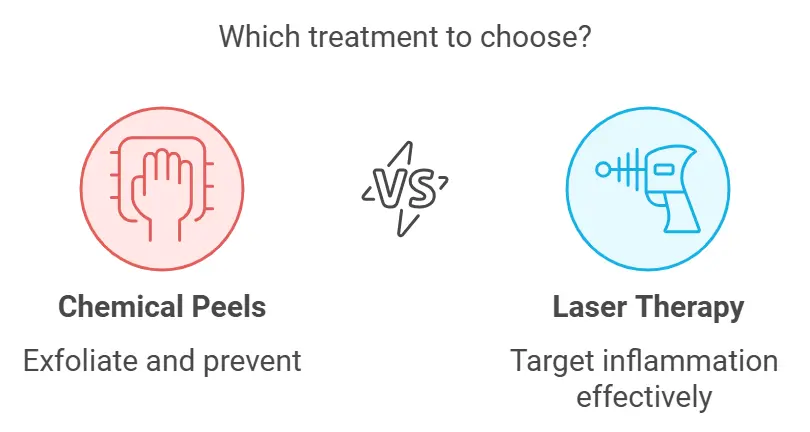
For persistent nodules, procedures like chemical peels and laser therapy can help. Chemical peels exfoliate the skin’s surface, removing dead skin cells and preventing future nodules on your face. Laser therapy, on the other hand, targets the deeper layers of the skin, helping to reduce the inflammation and bacteria associated with nodule pimples.
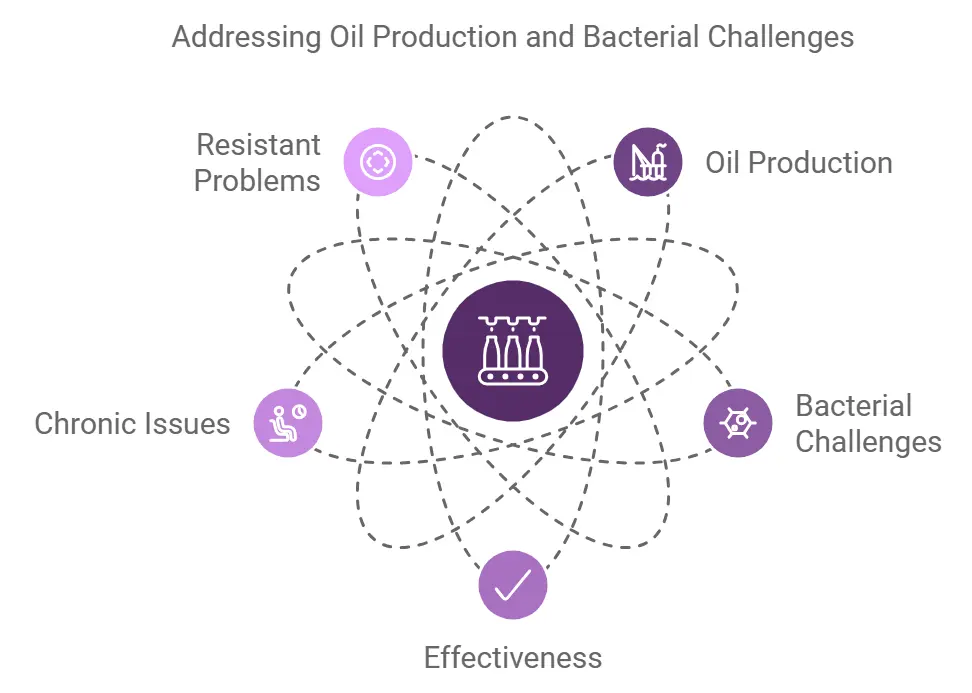
Accutane, or isotretinoin, is considered one of the most effective treatments for severe nodular acne. It’s a powerful medication that targets all aspects of acne, from oil production to bacteria. However, it’s usually reserved for severe cases, as it can have side effects. If your hard, under-the-skin pimple issues are chronic and unresponsive, your dermatologist may discuss this as an option.
With these professional treatments, you’re not just covering up the symptoms – you’re addressing the root causes of nodular acne.
If you want to avoid dealing with these stubborn lumps altogether, the next section will explore some of the best products for managing and preventing nodular acne at home.
When it comes to battling nodular acne, choosing the right products can make a huge difference. Not all skincare items are suited for the deep, stubborn nature of nodule pimples, so picking targeted products can help reduce inflammation and prevent new nodules from forming. Here’s a rundown of some tried-and-tested options:
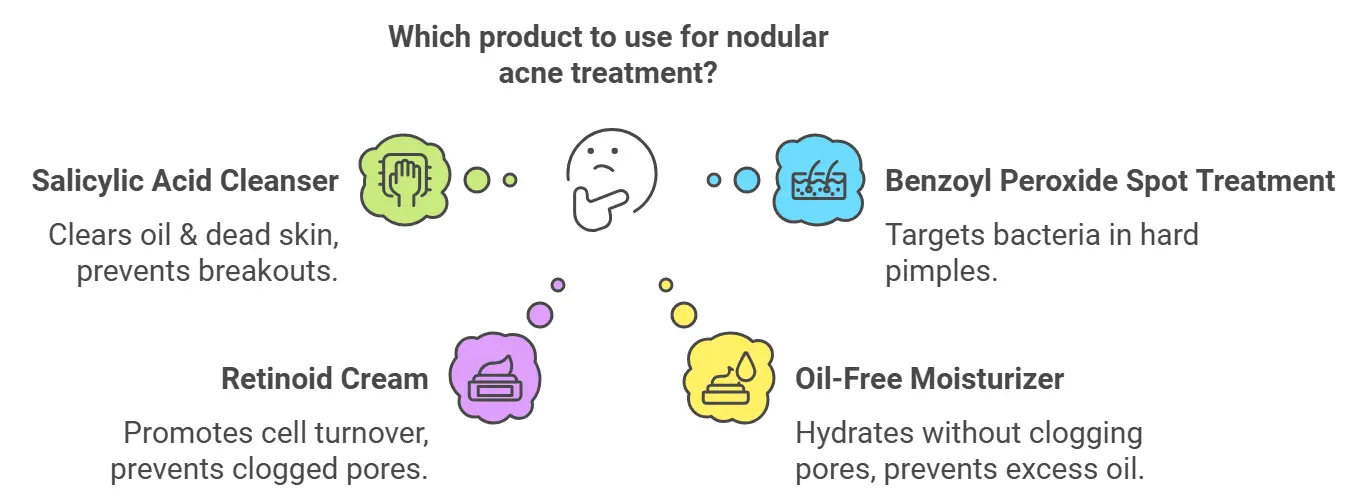
Salicylic acid is a popular ingredient that penetrates deep into pores, helping to clear out excess oil and dead skin cells. Look for a gentle, salicylic acid-based face wash to start your skincare routine. Regular use can reduce nodular acne and prevent future breakouts by keeping pores unclogged.
For those moments when a hard, under-the-skin pimple appears, benzoyl peroxide can come to the rescue. It’s known for its antibacterial properties, effectively reducing the bacteria contributing to facial nodules. Apply a small amount as a spot treatment to target specific areas.
Prescription-strength retinoids are powerful for treating nodule pimples over the long term. These creams promote faster cell turnover, preventing pores from clogging and helping to fade any leftover marks. Since retinoids can be strong, it’s best to introduce them gradually into your routine.
When dealing with nodular acne, using the right moisturizer is essential. Opt for oil-free, non-comedogenic moisturizers that won’t clog your pores. Keeping the skin hydrated prevents it from overproducing oil, which can contribute to those pesky nodule pimples.
This might surprise you, but sunscreen is essential even for acne-prone skin. Exposure to the sun can worsen inflammation and leave dark marks after a nodule pimple heals. Look for a lightweight, oil-free sunscreen with high SPF to protect your skin without clogging your pores.
Adding these products to your skincare routine can help manage nodular acne. But remember, consistency is key—don’t expect overnight results. Stick with your routine, and you may notice a gradual improvement over time.
Now that we’ve covered the essentials, let’s discuss when to visit a dermatologist. In the next section, we’ll discuss signs that it’s time for professional help, especially for cases where nodule pimple removal just isn’t happening on its own.
So, you’ve tried every home remedy, followed a solid skincare routine, and used all the right products, but those stubborn nodules pimples just won’t go away. When is the time to reach out to a professional? Sometimes, nodule acne removal requires more than just over-the-counter solutions, and that’s where dermatologists come in.
If you’re dealing with painful, persistent nodules on the face that don’t respond to home treatments, visiting a dermatologist is a wise next step. Dermatologists specialize in advanced nodules treatment methods and can tailor a plan that suits your skin type and acne severity. Not only can they help speed up recovery, but they can also work to prevent new nodular zit outbreaks.
Wondering what a dermatologist might suggest? They could prescribe antibiotics to reduce bacteria or retinoids to prevent future nodule pimples. In cases where nodules are especially painful or resistant to other treatments, cortisone injections can quickly reduce swelling – ideal if you need a fast fix before a big event!
Another sign it’s time for professional help is if your nodule pimple keeps turning into a hard lump that won’t heal or, worse, leaves scars. A dermatologist can guide you through chemical peels or even laser therapy to reduce inflammation and improve skin texture, helping you say goodbye to that hard, under-the-skin pimple.
If you’re ready to take charge of your skin’s health, consider booking an appointment. Up next, we’ll cover some preventative tips that can keep those nodule pimples from reappearing so you can keep your skin as clear and healthy as possible.
Now that you’re armed with treatment options let’s talk prevention. After all, wouldn’t it be nice if those pesky nodule pimples didn’t show up in the first place? Keeping nodules on your face at bay can feel like a balancing act, but with a few simple habits, you can reduce the chances of those deep, painful nodules returning.
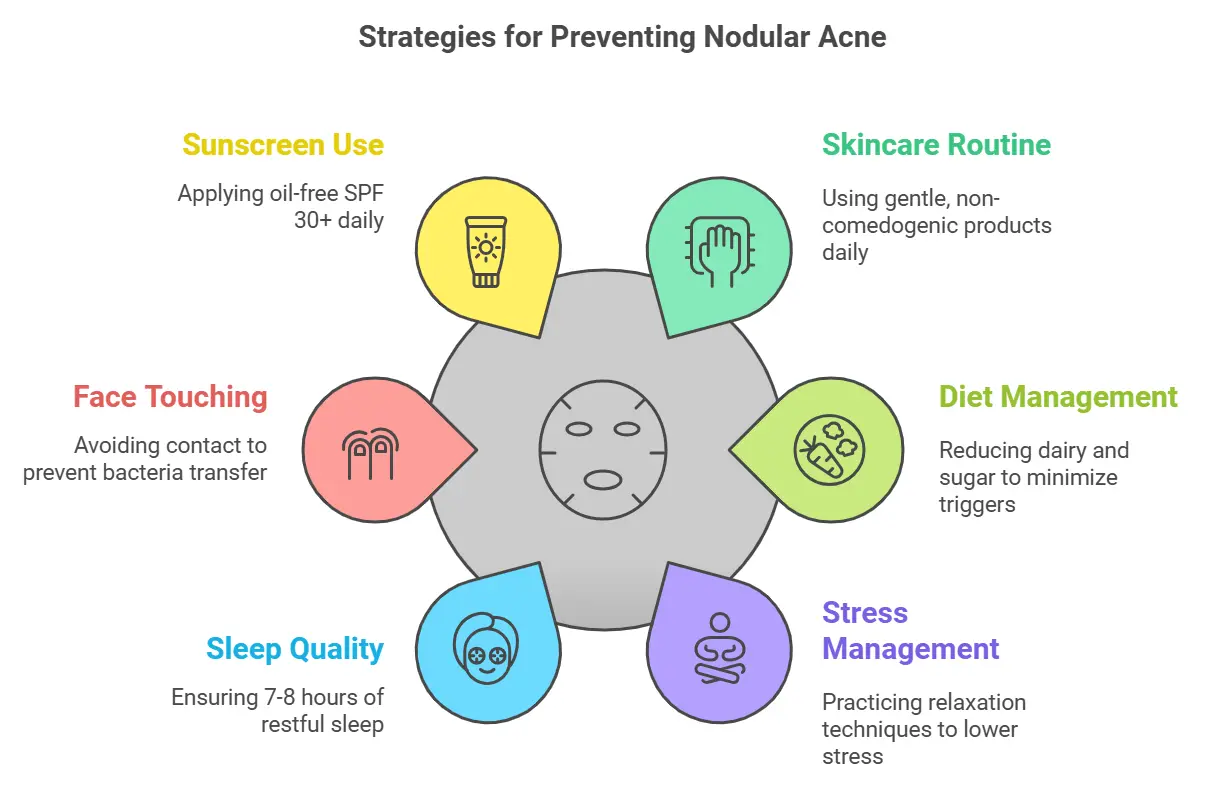
Consistency is key in preventing nodules pimples. Use a gentle, daily cleanser with ingredients like salicylic acid to help keep pores clear. Look for non-comedogenic products that won’t clog your pores, as this can be one of the best defences against nodule pimple formation.
Ever noticed a connection between what you eat and your skin? Some people find that dairy or high-sugar foods can contribute to nodule pimples. While everyone’s triggers are different, cutting back on these foods may reduce inflammation and oil production, keeping your skin clearer over time.
Stress doesn’t just affect your mood – it can affect your skin, too. High stress levels can trigger hormonal shifts that lead to acne, including hard under-the-skin pimples. Find ways to relax, whether it’s through meditation, yoga, or simply taking time for yourself. Reducing stress can be a powerful tool for keeping nodules on your face at bay.
Quality sleep plays a significant role in skin health. During deep sleep, your skin repairs itself, which can help prevent new pimple nodules from forming. Aim for a solid 7-8 hours each night to give your skin the chance to heal and refresh.
It’s tempting to touch or squeeze nodule pimples, but doing so can make things worse. Touching your face transfers bacteria and oils, which can lead to more acneiform nodules. Try to keep your hands off your face, and if you need to touch it (like when applying skincare), make sure your hands are clean.
Sun exposure can worsen nodular acne by increasing inflammation and leaving post-acne marks. Use a broad-spectrum sunscreen with SPF 30 or higher, and opt for lightweight and oil-free. Regular sunscreen use can help prevent scars and support overall skin health.
With these simple steps, you can stay proactive about managing nodule pimples and keep your skin in check. It’s all about consistency and finding what works best for you.
Ready to take the next step in your skincare journey?
Nodular acne may be tough, but with the right tools, tips, and treatments, it can be managed.
A dermatologist can help if you feel frustrated or hopeless about your skin. Nodular acne can have a hard effect on self-esteem, and having an expert’s guidance can make all the difference.